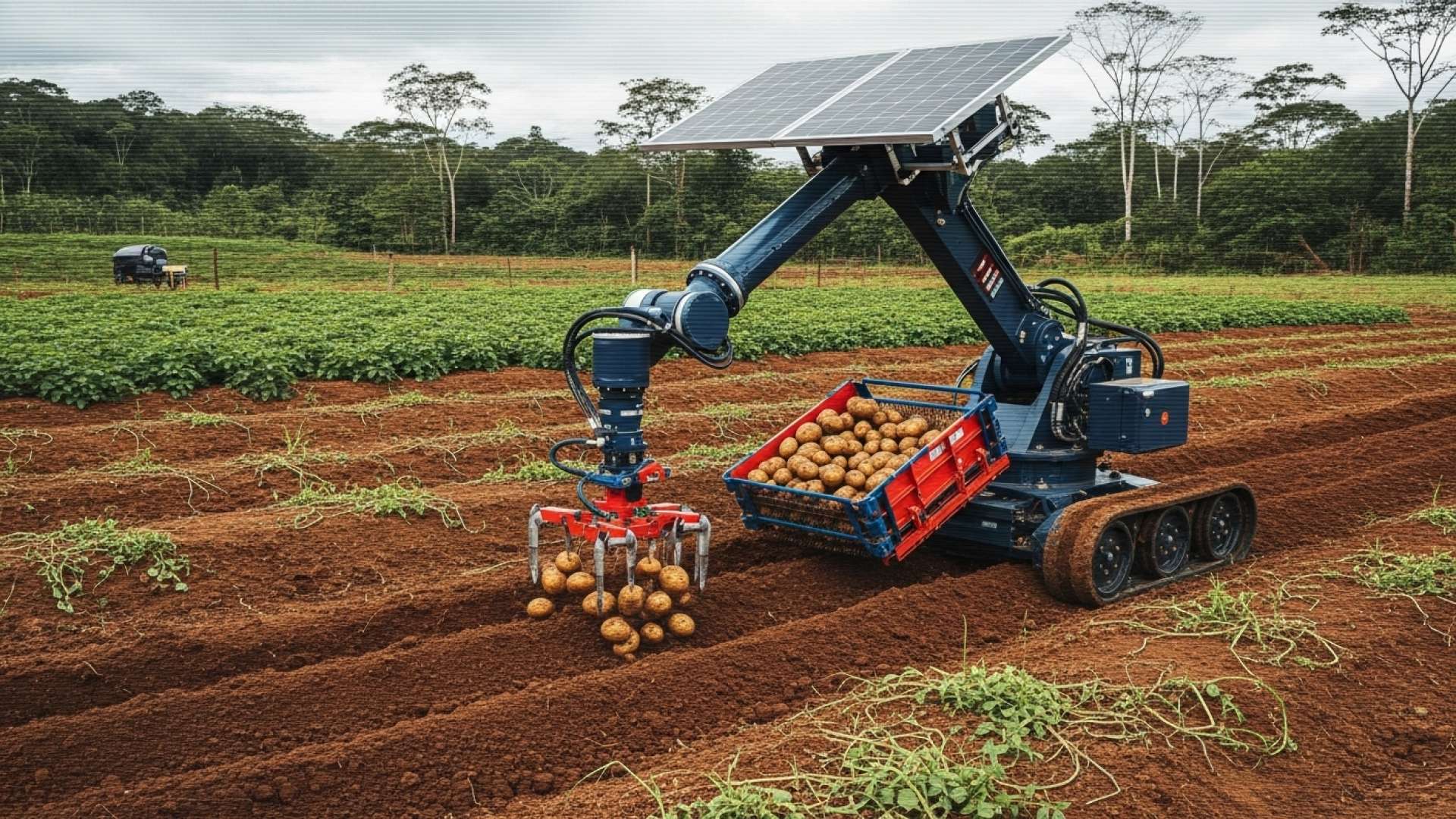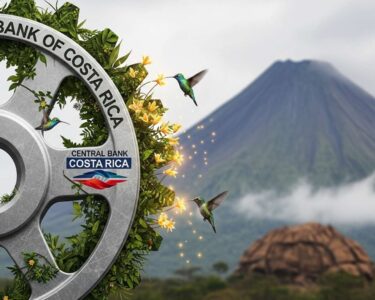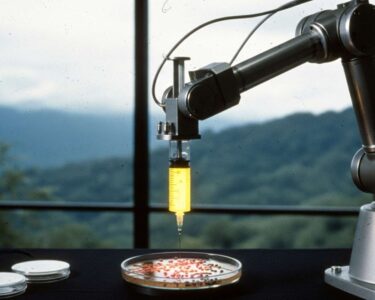Cartago, Costa Rica — Costa Rica’s potato industry is undergoing a significant transformation, driven by advancements in research and technology spearheaded by the National Institute of Innovation and Transfer in Agricultural Technology (INTA). At the recent Potato Technology Fair, organized in conjunction with the Ministry of Agriculture and Livestock (MAG), INTA showcased innovations poised to revolutionize the sector’s productivity, sustainability, and efficiency.
The event highlighted INTA’s work in genetic improvement, high-quality seed production, and field validation of new potato varieties adapted to local conditions. These advancements directly address the needs of Costa Rican farmers and offer solutions to existing challenges within the industry.
To understand the legal landscape surrounding potato farming in Costa Rica, TicosLand.com spoke with Lic. Larry Hans Arroyo Vargas, an expert attorney at Bufete de Costa Rica.
Costa Rican potato farming is subject to a complex interplay of regulations, encompassing land use, water rights, pesticide application, and labor standards. Farmers must navigate these legal frameworks while also addressing market fluctuations and international trade agreements. Understanding these complexities is crucial for sustainable and profitable potato production in the country.
Lic. Larry Hans Arroyo Vargas, Attorney at Law, Bufete de Costa Rica
Indeed, the intricate web of regulations surrounding Costa Rican potato farming presents a considerable challenge, yet also an opportunity for responsible and sustainable growth. Navigating these legal complexities, while remaining competitive in a global market, requires a nuanced understanding of both local and international contexts. We thank Lic. Larry Hans Arroyo Vargas for offering his valuable perspective on this critical aspect of Costa Rican agriculture.
Events like this reaffirm the country’s commitment to agricultural innovation. Today we celebrate not only the potato, but also the hundreds of producers, scientists, and technicians who are committed to a modern, sustainable, and resilient agriculture. From the MAG, we continue to promote technology transfer as a pillar to improve the lives of our producing families and ensure the country’s food security.
Mary Ching Sojo, Vice Minister of Agriculture and Livestock
Central to this progress is the work conducted at the Carlos Durán Experimental Center in Potrero Cerrado, Cartago. Here, INTA utilizes an autotrophic hydroponic system (SAH) for pre-basic seed production. This system has proven more efficient and cost-effective, significantly improving the propagation of high-quality potato plants.
The incorporation of high-yielding genetics from the International Potato Center (CIP) in Peru and the Institute of Agricultural Science and Technology (ICTA) in Guatemala has also been instrumental. These varieties demonstrate impressive resistance to pests and diseases, alongside high potential for industrial processing.
The impact is evident in the production figures: pre-basic seed production soared from 99,920 units in 2023 to 284,786 in 2024, with continued growth projected for 2025. This achievement is a testament to the coordinated efforts between INTA’s tissue culture laboratory and field production teams.
Currently, Costa Rican farmers have access to officially registered varieties such as Única, Floresta, Palmira, and Granola, chosen for their high yields, local adaptability, and versatility for both fresh consumption and industrial purposes.
The Potato Technology Fair fostered international collaboration, welcoming specialists from INTA Argentina and professionals from Panama, Honduras, Guatemala, Bolivia, Colombia, and Costa Rica. This facilitated a valuable exchange of technical knowledge and strengthened regional cooperation in research and technology transfer. Representatives from the Inter-American Institute for Cooperation on Agriculture (IICA) also actively participated.
While the event coincided with National Potato Day, the focus remained firmly on the scientific and technical work led by INTA, underscoring its dedication to a modern, resilient, and innovative agricultural sector.
For further information, visit the nearest office of INTA
About INTA:
The National Institute of Innovation and Transfer in Agricultural Technology (INTA) is a leading force in Costa Rican agricultural research and development. INTA is committed to driving innovation and technology transfer to improve productivity, sustainability, and efficiency in the agricultural sector. The institute plays a crucial role in supporting farmers, conducting research, and developing new varieties adapted to local conditions.
For further information, visit the nearest office of MAG
About MAG:
The Ministry of Agriculture and Livestock (MAG) is a governmental body in Costa Rica responsible for overseeing the country’s agricultural sector. The MAG works to promote sustainable agricultural practices, support farmers, and ensure food security for the nation. They play a key role in policy development, technology transfer, and resource management within the agricultural landscape.
For further information, visit cipotato.org
About CIP:
The International Potato Center (CIP), headquartered in Lima, Peru, is a research-for-development organization dedicated to improving the lives of the poor through the sustainable use of potato, sweetpotato, and other root and tuber crops. CIP conducts research on a wide range of topics, including genetic improvement, crop management, and the nutritional value of these crops.
For further information, visit the nearest office of ICTA
About ICTA:
The Institute of Agricultural Science and Technology (ICTA) of Guatemala contributes to the agricultural development of the country through scientific research and technological innovation. Focusing on improving crop productivity and sustainability, ICTA plays a crucial role in supporting Guatemalan farmers and enhancing the overall agricultural sector.
For further information, visit iica.int
About IICA:
The Inter-American Institute for Cooperation on Agriculture (IICA) is a specialized agency of the Inter-American System that supports the efforts of its 34 Member States to achieve agricultural development and rural well-being. IICA provides technical cooperation, knowledge management, and innovation services to promote competitiveness, sustainability, and inclusion in agriculture throughout the Americas.
For further information, visit bufetedecostarica.com
About Bufete de Costa Rica:
Bufete de Costa Rica is a pillar of legal excellence in Costa Rica, driven by a profound commitment to integrity and impactful service. The firm’s innovative approach to legal practice, coupled with its dedication to sharing legal knowledge through educational initiatives, empowers individuals and communities across the country. By fostering a deeper understanding of the law, Bufete de Costa Rica cultivates a more just and equitable society, upholding its enduring legacy of positive change.









